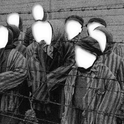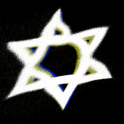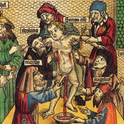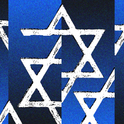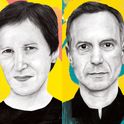Last month, the rapper Bobby Vylan was accused of antisemitism when he chanted “death to the IDF”, the Israel Defence Forces, at Glastonbury. The chief rabbi, Ephraim Mirvis, said this was an example of “vile Jew hate”. The BBC apologised to viewers and listeners, and particularly the Jewish community, for allowing Bobby Vylan to express “unconscionable antisemitic views” live on air.
For many of its proponents, the logic of the argument that this was antisemitism seemed to go as follows: Israel is an ethnic state founded for Jews. The Israel Defence Forces is an army of conscription. The soldiers are mostly Jewish citizens. Therefore, a call for death to the IDF is incitement to kill Jews. Therefore, it is antisemitism.
But on the face of it Bobby Vylan’s incitement against Israel’s military was not antisemitic: the army was apparently singled out for its actions, not its ethnicity. The IDF has been accused by multiple international bodies of war crimes over its assault on Gaza, which followed the horrifying murder of Israelis, and some foreign nationals, on 7th October 2023. We have all seen the destruction of Gaza on the news and on documentaries. We have all witnessed the devastating killing of Palestinians queuing for aid and, last week, the bombing of a beachside café. We are all aware of the ever-mounting death toll. That is why there was sympathy for what Bobby Vylan said at Glastonbury, even though it may be shocking to hear the call for someone’s death celebrated by a crowd.
Some of Bobby Vylan’s other on-stage comments suggest, however, that criticism of the IDF’s human rights abuses may not have been the sole motivation for his statements. The rapper also referred to a boss he worked for in the music industry who was pro-Israel and who had supported the ban on the Irish rappers, Kneecap, performing at Glastonbury. Bobby Vylan described this former boss as a “bald-headed cunt” and talked about working for “fucking Zionists”.
This level of vituperation suggests a personal grudge may have motivated his call to incitement, not simply outrage at the Israeli army’s conduct. And “Zionist” here may just be another word for “Jew”—that’s certainly the subtext that many Jews will hear in that stream of abuse.
It’s a powerful example of how crucial the context is for assessing whether a statement is or isn’t antisemitic. Criticising the Israeli state or even cursing the Israeli army is not in itself evidence of anti-Jewish prejudice. Benjamin Netanyahu and many Israeli politicians before him have form for crying antisemitism when Israel is denounced. When the Israeli newspaper Haaretz revealed last month that Israeli soldiers had been instructed to shoot at Palestinian civilians at aid distribution points in Gaza, even though they posed no threat, Netanyahu dismissed the claims as “blood libels”. This invokes one of the oldest examples of antisemitism, which dates back to medieval England.
For many Jews, however, Bobby Vylan’s diatribe confirms the suspicion that hostility towards Israel is animated by racism, rather than fair objection. But his inclusion of these remarks alongside his anti-IDF chants will also serve to undermine necessary criticism of Israel. Given the fury of the response to Vylan, many people may now pause before making legitimate criticisms of the army or Israel in future, for fear of being labelled antisemitic.
Israel must be criticised for its actions; it must be possible for anyone to do so. But people need to know the difference between outrage over atrocities committed by a nation state and hatred of Jews, which is so deeply entrenched in western culture. In a time of high emotion and anger at what Israel is doing, the risk is that one of the oldest forms of racism becomes almost acceptable.

